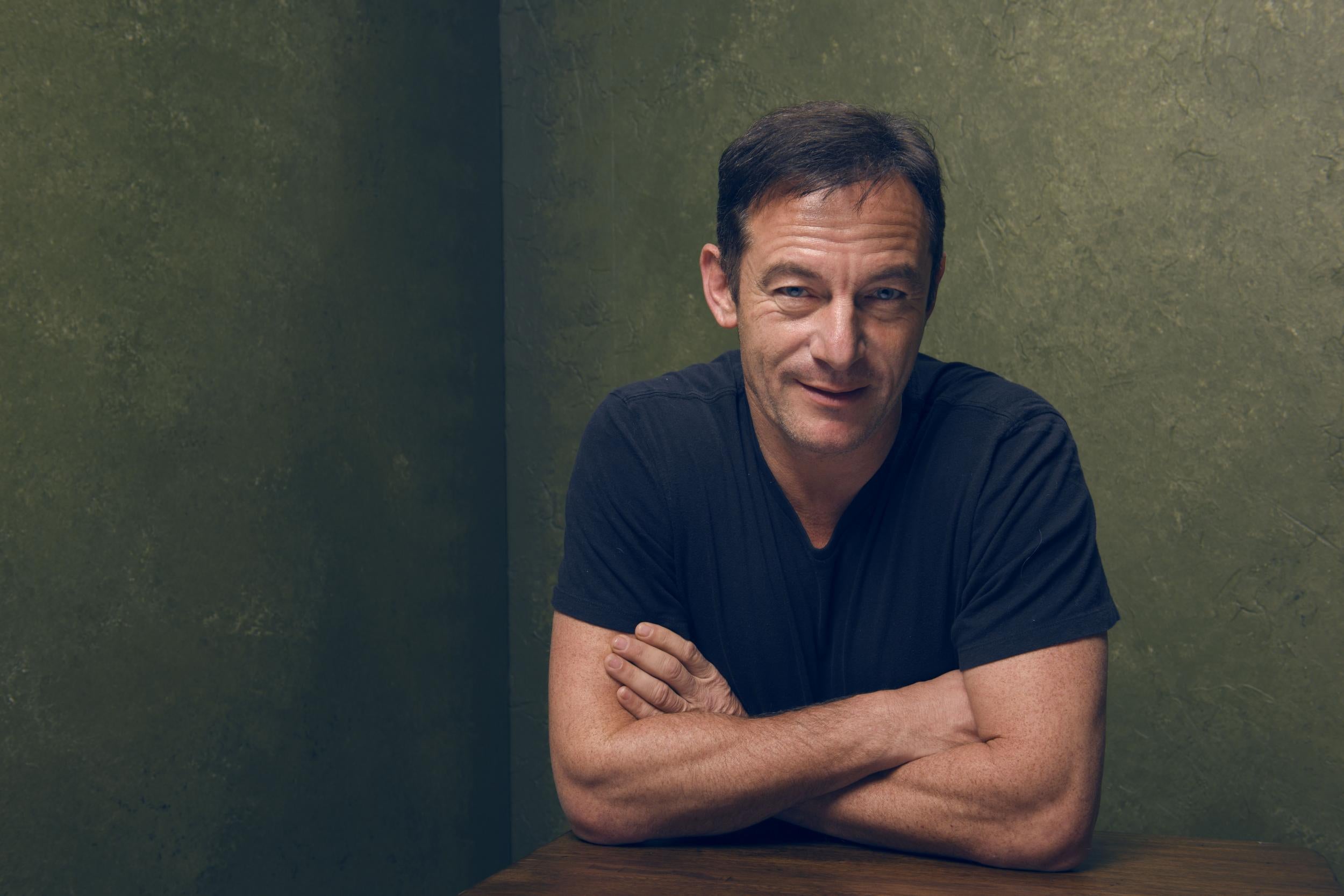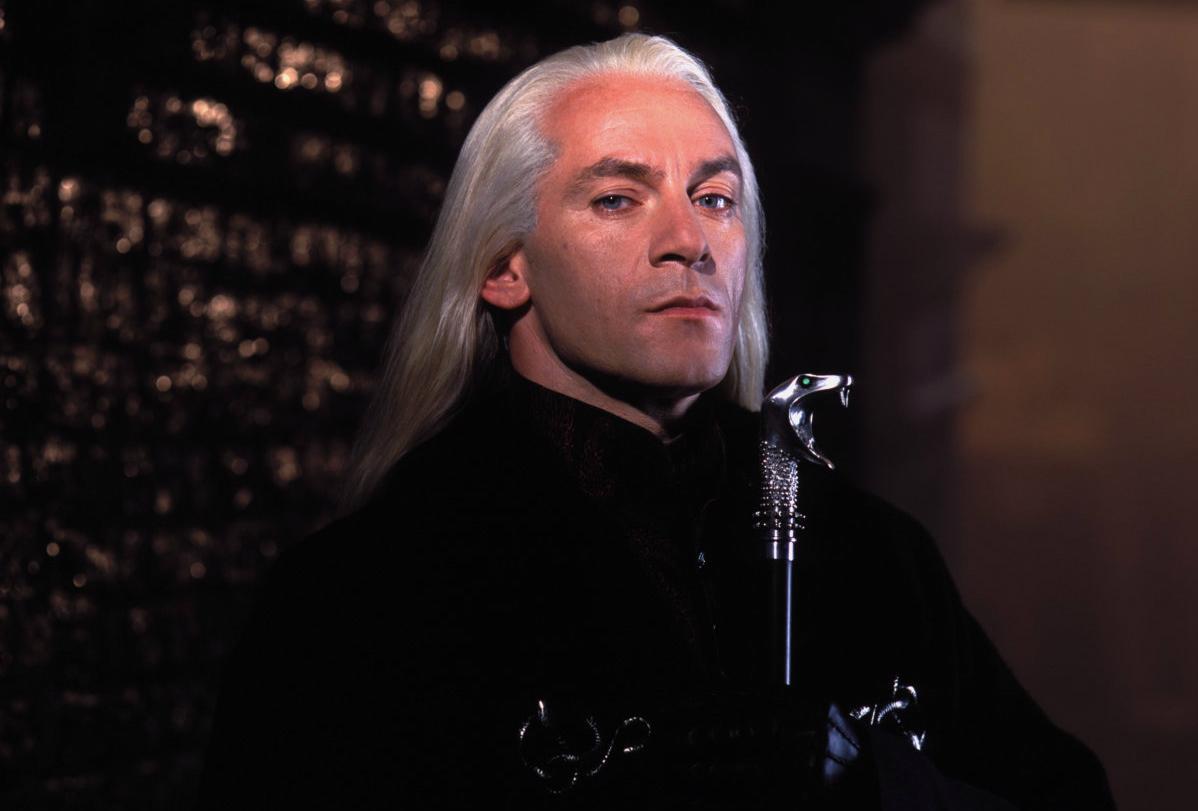Jason Isaacs: ‘There’s no adult I know who hasn’t been the victim of sexual abuse or assault or people exposing themselves on the tube’
The Harry Potter star talks to Alexandra Pollard about the new season of Netflix’s ‘The OA’, the effects of the #MeToo movement and why he’s an ‘idiot’ on set


Your support helps us to tell the story
From reproductive rights to climate change to Big Tech, The Independent is on the ground when the story is developing. Whether it's investigating the financials of Elon Musk's pro-Trump PAC or producing our latest documentary, 'The A Word', which shines a light on the American women fighting for reproductive rights, we know how important it is to parse out the facts from the messaging.
At such a critical moment in US history, we need reporters on the ground. Your donation allows us to keep sending journalists to speak to both sides of the story.
The Independent is trusted by Americans across the entire political spectrum. And unlike many other quality news outlets, we choose not to lock Americans out of our reporting and analysis with paywalls. We believe quality journalism should be available to everyone, paid for by those who can afford it.
Your support makes all the difference.As an actor, you don’t play good or bad,” says Jason Isaacs. “Donald Trump looks in the mirror every day, he doesn’t see a white supremacist, he doesn’t see a bully, he sees a righteous warrior.”
The 55-year-old star of the Harry Potter films, The Death of Stalin and Star Trek: Discovery is explaining – at a frighteningly fast pace – why I’m wrong to have described his character in Netflix series The OA as “not a nice person”. I had thought it a fairly uncontroversial statement, given that Hunter Aloysius “Hap” Percy kidnaps five people, feeds them only pellets, makes them drink, wash and go to the bathroom in a communal trough, gasses them and performs experiments that involve repeatedly drowning them. Apparently not.
“I think that’s questionable, frankly,” says Isaacs, who is on the edge of his seat in a London hotel room. “Strongly. This is a guy who’s on the brink of the greatest scientific breakthrough there’s ever been in the history of mankind.”
To explain exactly what he means would be to spoil one of the best, strangest and most inventive series of recent years – the second season of which has just landed on Netflix. Beyond knowing the basic premise – a young blind woman goes missing for seven years, and then returns mysteriously able to see – it is best to approach The OA not knowing where its snaking plot is heading. But the “breakthrough” he’s referring to involves near death experiences and interdimensional travel.
“I see him referred to as a ‘mad scientist’, but I would never have taken the part if I thought that was true,” Isaacs continues. “He’s not mad, because he’s right.” Surely, though, you can be scientifically “right”, and it’s still not worth putting human beings through… “But do you not think it’s worth it?” he interjects. “Do you not think if I came to you and said, ‘I’ve cured cancer, no one will ever get cancer and die again, and some questionable things have happened along the way…’” I still think it’s unacceptable. “Well, I wouldn’t like it to happen to me, obviously!”
Isaacs, who grew up in an “insular” Jewish community in Liverpool (though there’s no remnant of that accent left), is no stranger to playing characters of questionable moral fibre. For a decade, he played Lucius Malfoy, one of evil wizard Voldemort’s most loyal followers, in the Harry Potter series. He also played a New England gangster in US crime drama Brotherhood, and the murderous Captain Hook in the 2003 big-budget flop Peter Pan. In person, he is far from sinister, though he has an actorly self-assurance that can feel almost imposing. He often begins sentences with a commanding “Look…” and will say, “I don’t know that I have anything articulate to say”, before spinning a lavish soliloquy that lasts for about five minutes.
He says he chooses his roles carefully. “There have been jobs along the way that I could have enriched myself with, and maybe would have been good for our family financially,” says Isaacs, who has two daughters with his partner, the filmmaker Emma Hewitt, “but it would have been putting things out in the world that are pernicious and misogynistic and in every way doing damage to how we all behave, and how we all treat each other.”
In Isaac’s view, there is a difference between depicting traits like misogyny, and perpetuating them. “I do think it’s important that we don’t avoid showing people’s worst, most venal, sexist or xenophobic instincts through character, because those things exist everywhere, and to avoid depicting them through fiction is to deny us the chance to discuss them.”

There has been much discussion lately about such instincts. When we meet, it’s a year to the day since Isaacs talked about the then-newly emerging #MeToo movement in an interview. “It was interesting,” he says when I bring up the piece, “the interviewer was obviously much keener than me on having a #MeToo conversation, which I was perfectly happy about, but when I read it, I thought, ‘Oh, it makes me look like I wanted to hold myself up as some great feminist icon’, which is not at all what was going on. But anyway. What was your question?”
Has he noticed a difference, in the year since they had that conversation, in the way people behave on set? “I don’t notice a difference,” he says, “because I’ve never noticed that it’s ever been OK to be rude, to be sexist, to be commenting on people’s looks, certainly to be physically, manifestly abusive to anybody.
"Most of the things that have led to the complaints of the #MeToo movement are things that have happened behind closed doors. It’s stuff that would never have been done in public, because it would never have been acceptable in public. So I don’t notice the difference. Of course, I’m not a woman, so I’m not able to say whether people treat me differently. I don’t know anybody who does condone that kind of behaviour, or those kind of comments, even at the most mild level, where it could be laughed off as a joke. That stuff stopped happening, as far as I’m aware, a long time ago. But maybe my antennae are not as finely tuned as women’s are.
“But there is a much more subtle conversation to be had,” he adds, “because I hear things said around my daughters. It’s shameful that I’m only more aware of it since having daughters, obviously, but the first thing people say to girls is, ‘Your hair looks great, I love those shoes, you look so fabulous, your skin looks great…’ And I never had any of those things said to me as a boy. If you have that said to you for your entire life, then suddenly you define yourself by the way you look. That’s not a part of the #MeToo movement, it’s just part of how the world deals with women, and so how women, I guess, will start to think of themselves. That’s, I’m sure, why there’s so many people reaching to be gender neutral – to be free from all that stuff.” I’m not sure that’s quite true, but there’s no time to interrupt. Isaacs speaks faster than anyone I’ve ever interviewed, and with scarcely any stumbles or digressions. The average conversation rate for English speakers, according to the National Centre for Voice and Speech, is between 120 and 150 words per minute. Isaacs manages 250.
He ploughs on. “It was shocking when this conversation started, to find out that there’s literally no adult I know who hasn’t been the victim of some kind of sexual abuse, or sexual assault, or at the lower end of the scale, people exposing themselves on the tube or something, and thinking, ‘Well OK, so my daughters are going to experience that soon… if they haven’t already and haven’t told me.’ But where it’s going I don’t know. It’s clearly going in the right direction at least, and the conversation is had all the time, which is an incredibly healthy thing. I wish we could get to the end game very quickly.”
For his part, along with choosing roles that further the conversation and avoiding ones that might be damaging, Isaacs likes to create a bright, positive atmosphere on set. “If you visited the set,” he says, “you’d think, ‘Who’s that twat over there? He can’t stop making jokes, he’s clowning around, it’s like having a five-year-old, he’s getting under people’s feet…’ but that’s actually true of lots of actors. It’s to keep ourselves free.”
There are times, he says, when his co-stars aren’t exactly compatible with this method. “Sonequa [Martin-Green, the lead in Star Trek: Discovery] takes acting a very different way from me, and she’s the mother of the set, she’s the queen of all there, and you have to be respectful of the fact that her character’s quite serious, and she’s quite serious, so I don’t do it when she’s around. But mostly, I’m an idiot. Given the chance, I bring some speakers and play loud silly disco music and get us all dancing, because actually I think the work is better that way.
“But if you want to put drawing pins in your shoes, or pictures of your dead pet on the wall,” he concludes, throwing up his hands, “all power to you.”
The OA season two is on Netflix now
Join our commenting forum
Join thought-provoking conversations, follow other Independent readers and see their replies
Comments